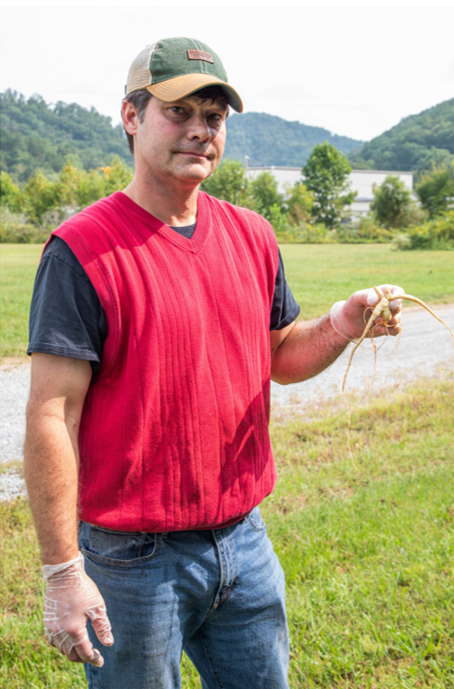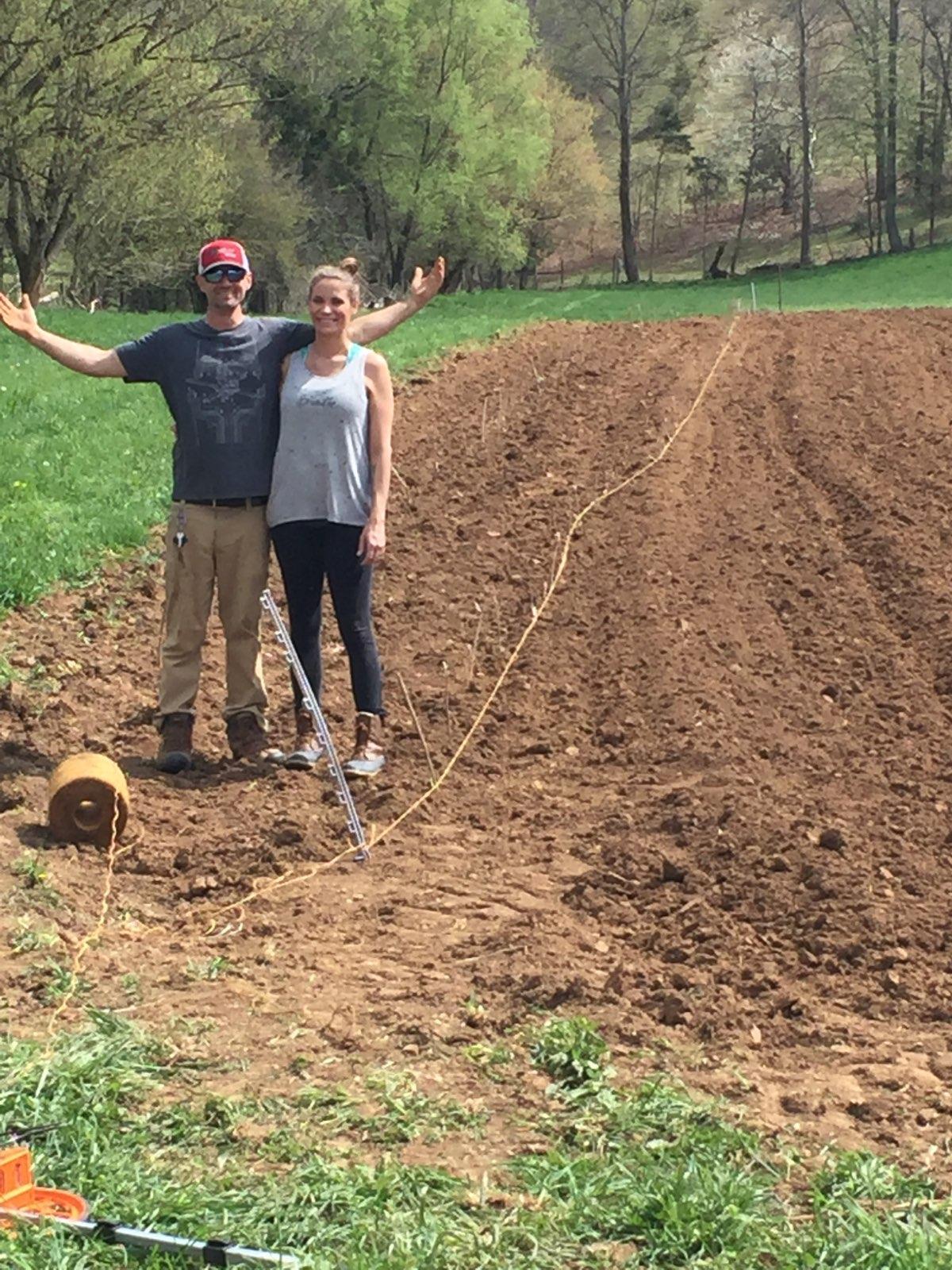In 2017, Appalachian Sustainable Development (ASD) expanded one of the oldest food hubs in the country – Appalachian Harvest – to include an Herb Hub in its Duffield, Virginia facility. The Appalachian Harvest Herb Hub envisions a thriving and sustainable herbal economy in Central Appalachia, where plant conservation is achieved through profitable cultivation in agroforestry systems. The Herb Hub works with a network of medicinal herb farmers across Central Appalachia. The Herb Hub provies many services including providing seed, sale training, and on-farm technical assistance, and even cost-share funding for start-up, shared-use commercial herb processing equipment, and aggregation and marketing services.
The Herb Hub connects farmers with domestic and international buyers who pay premium prices for high-quality, sustainably grown herbs. For example, while wild harvested goldenseal root may sell for $60 per dry pound, the Herb Hub secures at least $130+ per dry pound for sustainable forest farmed goldenseal roots. To ensure farmers are growing for secured wholesale and retail markets, the Herb Hub obtains advanced annual purchase orders and long-term contract farming agreements from buyers.
As an approved vendor, with food safety and organic certification, farmers can bring their harvest to the Herb Hub to process high quality herbs that meet stringent product specifications from buyers. Herb Hub staff train farmers on these specifications to prevent product rejection and ensure uniform processing and quality for its customers. The Herb Hub’s shared-use commercial herb processing equipment has also been shown to reduce farmer labor costs as much as $34 per dry pound for root crops like black cohosh, when compared to processing with small home scale equipment. Once processed, the Herb Hub aggregates supply from a network of farmers to meet volume minimums collectively. Without aggregation services, individual farmers may find it difficult to meet these minimums on their own.
Interviews with Herb Hub farmers, Blake Dillman and David Wallace, highlight the importance of the Herb Hub’s marketing services to the local agroforestry community:
Blake Dillman, Four Prongs Farm
“Pretty much everything we do is through the Herb Hub. I don’t have time to market. That’s where they are really a lot of help.”
 Figure 1. Blake Dillman with ginseng root.
Figure 1. Blake Dillman with ginseng root.
When a friend identified American ginseng on Blake’s property in 2014, he took up forest farming like his grandfather had before him. With a full time job, Blake dedicates weekends to his farm with low input production methods such as wild stewardship and wild simulation, to grow a variety of forest botanicals – American ginseng, blue cohosh, black cohosh, bloodroot, goldenseal, and Solomon’s seal. He has limited time for marketing, so the Herb Hub’s aggregation and marketing services have helped to “open doors that he would literally never see” otherwise.
David Wallace, Reeds Valley Farm
“ASD has been a tremendous help. They provided the Herb Hub processing center. They helped with securing contracts for sales. I couldn’t have done it without them.”
 Figure 2. David Wallace and plot establishment.
Figure 2. David Wallace and plot establishment.
A third-generation cattle farmer, David was looking for opportunities to diversify his farm income, but had limited time to devote to marketing new crops. In 2018, the Herb Hub secured a contract farming agreement with Lush Cosmetics, who helped pay for David’s start-up costs to sustainably grow herbs for their product lines. With a market already secured, David could focus his efforts on production with American elderberries planted in a riparian buffer and a variety of field grown herbs, lemon balm, stinging nettle, spearmint, marshmallow, and lavender on a one-acre plot.



